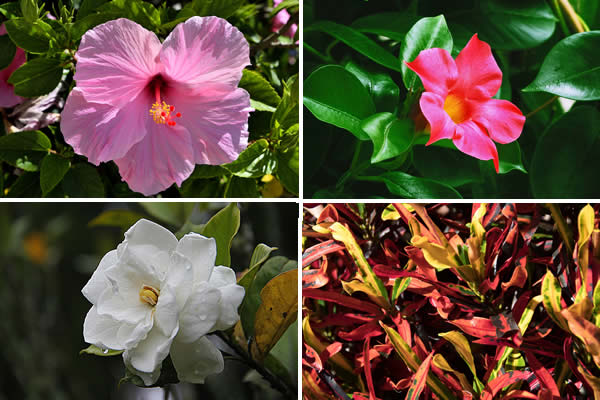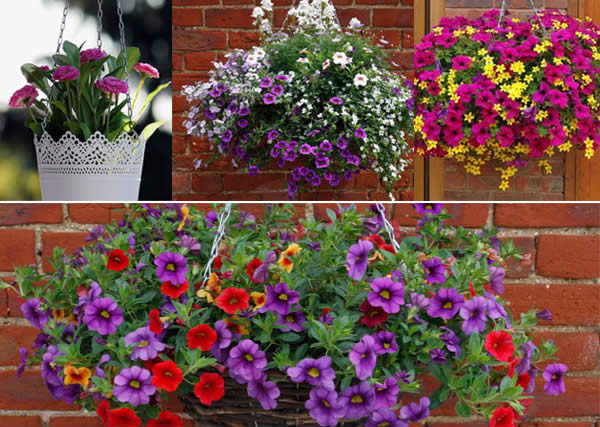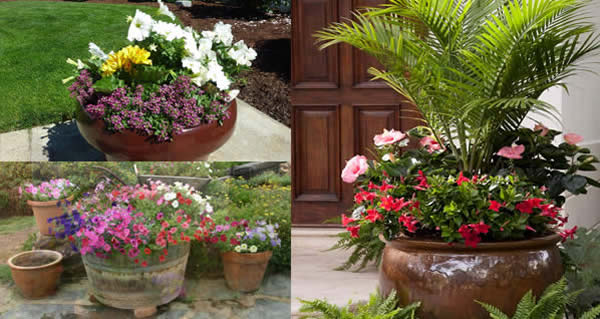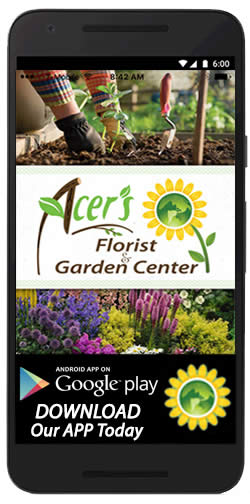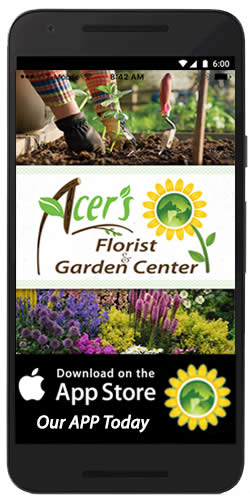
You don't have to live in Kansas to enjoy sunflowers in the garden! Sunflowers are easy and fun to grow. From tall varieties that reach for the sky to dwarf types that are knee-high, there's a variety to suit every gardener's needs. Since they grow very quickly, children enjoy watching them grow--and the large seeds are easy for small fingers to handle. Plus, if you buy a good eating variety, you can harvest the seeds and teach the kids to roast them for a healthy snack!
- Plant in full sun, where they will not shade other plants, or plant shade-lovers around them.
- Plant the seeds 1 inch deep and about 6 inches apart.
- When the seedlings come up, thin them to about 18 inches apart.
- Water well after planting and keep fairly moist, but not soggy, until the seeds sprout.
Sunflower seedlings will come up in one or two weeks. They will start out slowly, then speed up their growth rate. Children can be responsible for watering them, weeding around them and adding mulch around the plants.
Harvesting of sunflower heads is quick and easy--but you may need a ladder or stepstool if you are growing tall varieties. Watch the birds; when they start going after the seed heads, cover the heads with cheesecloth to protect the seeds. The seed heads will be ready to harvest when their backs are brown and dry and no traces of green remain.
Cut off the heads with a foot or two of stalk. Hang them upside down in a dry and airy place. When the seeds are dried, rub them off with your hand and store them in an airtight container. Don't wash them, as this could cause them to mold.
To roast sunflower seeds, place a single layer of raw dehulled kernels in a shallow pan. Roast in a 300 degree F oven for 30 to 40 minutes or until they are brown and crisp. Stir occasionally. Remove from the oven. One teaspoon of melted margarine may be added if preferred for each cup of seeds; stir to evenly coat. Place the seeds on absorbent paper. Salt to taste. Store in a tightly covered container.
For salted in-the-shell seeds, cover unhulled seeds with salted water in the amount of 2 quarts of water to 1/4-1/2 cup salt. Bring to a boil and simmer for 2 hours. Drain and dry on absorbent paper. Seeds may also be soaked overnight instead of boiled. Then proceed as for the roasted kernels above.
Click to print this article.

Whether or not there's a dry spell, saving water can reduce your bills, as well as making for a healthier lawn and garden.
Note that most water usage, and potential for reduction, is outside your home, in your yard and garden. Here are some ideas to lower your water consumption without planting your entire yard in succulents.
• Adjust your watering schedule.
Doing a monthly adjustment on your water timer can save hundreds or even thousands of gallons of water a month.
You don't have to stop watering your lawn, but watering it less often for longer periods will allow the water to soak to the roots and prevent evaporation. Adding an automatic or manual rain delay will also keep you from watering during or after good rain, when your lawn doesn't need it.
• Decrease the footprint of your lawn.
Eliminating underutilized sections of your lawn will save you time, money, and tons of water. You won't have to water, mow, dethatch, or seed lawn that no longer exists.
Take an honest look at your yard, and think of what else you could grow around the edges. Bushes, trees, succulents, and vegetable gardens work great around the edges of your yard, providing, shade, color, and privacy, all while helping you save water.
• Dethatch your lawn.
Dethatching removes old, dead growth, making it easier for the water to penetrate the soil, and leaves room for new growth to thrive.
• Raise your mower blades.
Letting your grass grow longer will help keep moisture in, and the sun away from the dirt, lessening evaporation. It will also help keep weeds out.
• Inspect your irrigation system.
It's very easy to have an underground leak in your irrigation system that drips water incessantly, costing you money and wasting loads of water.
Check around your sprinkler and drip lines and keep an eye out for areas that are too wet, have much faster-growing vegetation, or sunken impressions in the ground.
These are all signs that you have a leak. If you're not comfortable doing irrigation work, it's not a bad idea to talk to a professional, so you know it's fixed correctly.
• Trim bushes back from sprinklers.
If it's been awhile since you trimmed your bushes, you should check to ensure they are not blocking your sprinklers.
If you want to let them grow bigger, you should consider either raising or relocating your sprinkler heads so they will continue to get to the lawn.
If not, trimming the bushes back a bit will help make sure the water you're using gets where it needs to.
• Add a layer of mulch to your shrubs and trees.
Keeping a layer of mulch around your larger plants helps keep moisture in, keeps the weeds to a minimum, and can add a nice decorative touch to your beds.
• Use plants that need less water.
We have a large variety of plants that are either native or adapted to our climate, and will require less water than imports.
Ask one of our associates for some ideas that will work for your circumstance.
Saving water is easy, and has the potential to save you some cash and make your yard, and your water bill, much more sustainable.
Click to print this article.


